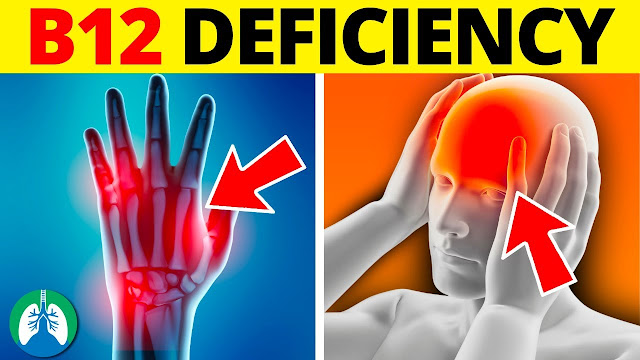Introduction
It's time to get serious about your health and make sure you're staying in the know of all the important signs of health and wellness! One thing you should be paying attention to is your vitamin B12 levels, as a deficiency can cause a wide range of symptoms that can effect your day-to-day life.
As the saying goes, an ounce of prevention is worth a pound of cure, so let's get proactive and make sure we're looking out for any potential signs that our B12 levels are low. Today we'll be discussing the seven most common warning signs of B12 deficiency, so that you can stay one step ahead in avoiding any problems.
Whether you're new to this whole health awareness thing or have been keeping track for years, it never hurts to double-check that everything looks good. So let's dive into the seven biggest warning signs so you can rest assured knowing your health is in check.
What Is B12 Deficiency?
B12 deficiency is a serious condition that can affect your health if left untreated. It is caused by a lack of vitamin B12 in the body, and can lead to a number of health problems.
Some of the most common symptoms of B12 deficiency are fatigue, weakness, constipation, and memory loss. However, there are many other warning signs that you should be aware of.
So if you're experiencing any of the following symptoms, it's important that you see a doctor right away and get tested for B12 deficiency: tingling or numbness in the hands or feet, difficulty balancing, mood swings, vision problems, chest pain, and anemia.
Symptoms of B12 Deficiency
There are many symptoms of B12 deficiency, and it's important to be aware of them so that you can get the treatment you need. Some of the most common symptoms include fatigue, weakness, mood swings, and memory problems.
If you're experiencing any of these symptoms, it's crucial to see your doctor as soon as possible. Early diagnosis and treatment is key in preventing more serious health complications down the road.
Main Causes of B12 Deficiency
Are you aware of the 7 warning signs of B12 deficiency? If not, it's time to familiarize yourself with them!
This is especially important if you are vegan or vegetarian, as B12 is mainly found in meat and dairy products. B12 is essential for energy production, healthy brain function, and the prevention of anemia.
So if you're experiencing any of the following symptoms, make sure to get yourself checked for B12 deficiency: tiredness, weakness, constipation, memory loss, mood swings, tingling or numbness in the hands and feet, and/or anemia.
Diagnosing B12 Deficiency
Now that we've discussed the 7 warning signs of B12 deficiency, let's talk about how to diagnose it. If you're experiencing any of the symptoms listed above, it's important to get a diagnosis from a qualified healthcare professional.
The most reliable way to diagnose B12 deficiency is through blood tests, which measure the amount of B12 in your body. Another type of test can detect the amount of methylmalonic acid present in your urine. High levels of this acid indicate a deficiency in B12.
These tests don't require much preparation or effort, so if you're worried you might have a deficiency, it's best to get tested as soon as possible in order to get an accurate diagnosis and begin treatment if necessary.
The 7 Warning Signs of B12 Deficiency
It's important to know what the signs of B12 deficiency are. If you're experiencing any of the following, it may be time to see your doctor and get tested:
The first sign is fatigue. Even if you're getting plenty of sleep, you could be feeling unusually fatigued if your body isn't producing enough B12. You might also experience digestive issues like constipation or diarrhea, loss of appetite, weight loss, confusion or memory loss, pale skin, and tingling in your hands and feet.
If you find yourself dealing with these symptoms frequently and without any explanation, consider talking to a medical professional about checking your B12 levels.
Ways to Get Adequate Amounts of Vitamin B12
So, now that you know the warning signs of a B12 deficiency, let's talk about ways to get adequate amounts of vitamin B12 in your diet. The best sources of B12 are animal-based foods like meat, poultry, eggs and dairy products. You can also find it in some fortified cereals and other foods, as well as dietary supplements.
It's really important to make sure you're getting enough vitamin B12 from natural food sources, since supplements are not always absorbed well by the body. If you're vegan or vegetarian, or have a health condition that affects your absorption of vitamin B12, you may want to talk to your doctor about taking a supplement. With the right diet and awareness, you can be sure you're getting enough of this vital nutrient!
Conclusion
No matter your lifestyle, being aware of the symptoms associated with B12 deficiency can help you stay healthy and happy. So if you’ve been feeling fatigued and having strange symptoms, take stock of what’s happening and monitor your state of health. A B12 deficiency is a preventable and treatable condition, but it’s important to stay vigilant in watching your body in order to recognize any signs of trouble. With these seven indicators in mind, you’ll be able to make the best decisions for your wellbeing.





0 Comments